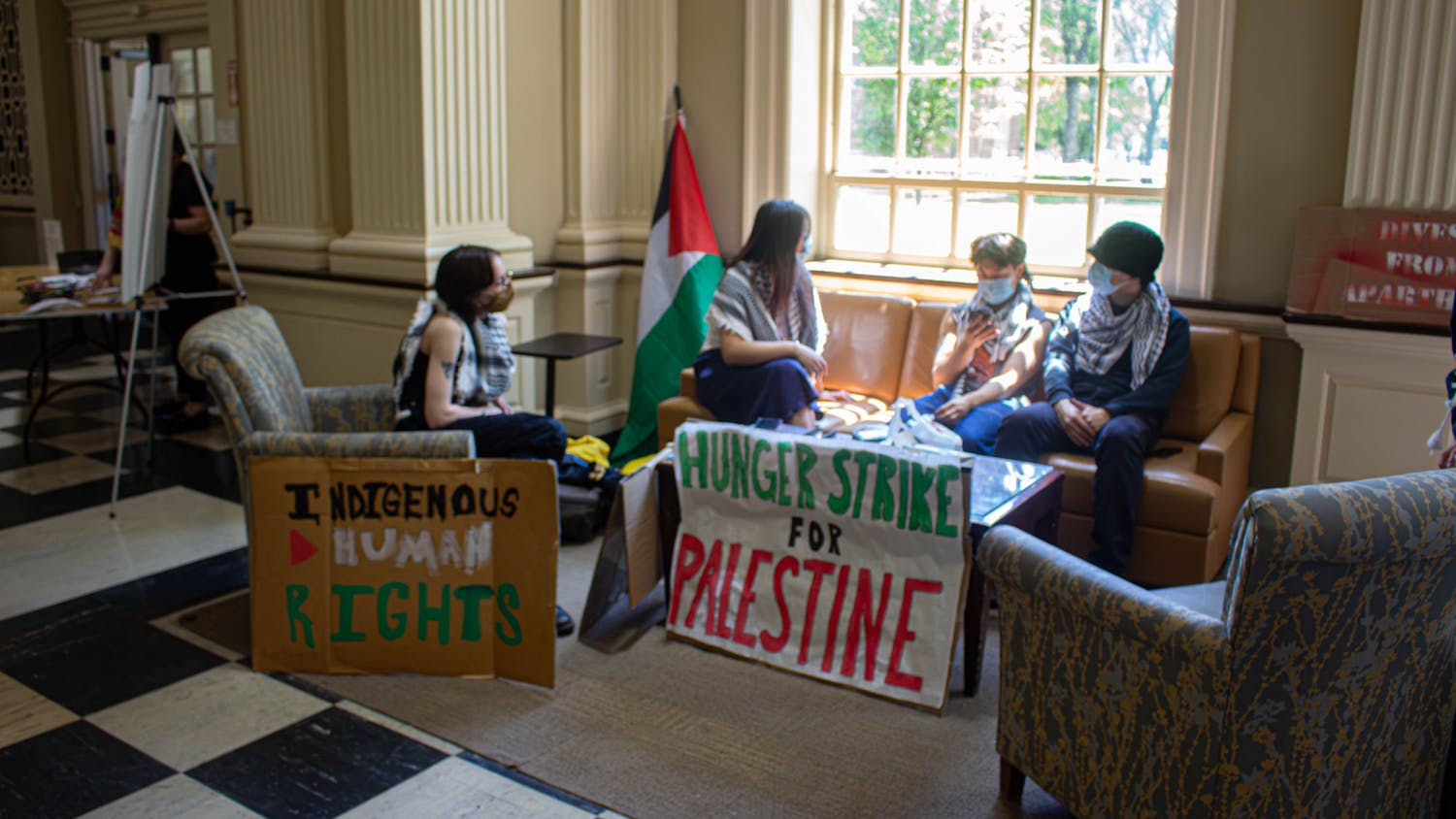Dartmouth faculty members offered input on the presidential search process to Dartmouth Board of Trustees Chairman Ed Haldeman '70 and trustee Al Mulley '70, the chair of the search committee, in an open forum on Friday. The trustees held similar forums for students, staff and alumni on March 14 and 15. The Board and the search committee will use the input to help create a "leadership statement" and to make the search process more transparent, Haldeman said.
The trustees were not originally going to have an open forum for faculty, but had planned to meet with faculty members from the Committee on Priorities, the Committee on Standards and with representatives from each of the graduate schools. These faculty members were supposed to solicit input from their colleagues and relate it to the Board. The trustees believed this type of process would be a more effective way to hear from faculty members over time than one open forum, Mulley said in an interview with The Dartmouth.
The trustees scheduled Friday's forum, however, after hearing on May 1 that many faculty members wanted to have an open forum similar to that held for students, staff and alumni, he said.
Faculty members said the next president should view Dartmouth both as a liberal arts college and a research university. Emphasizing one of these aspects over the other could turn Dartmouth into a "second-rate Williams" or a "second-rate Harvard," computer science professor Scot Drysdale said.
Several faculty members added that Dartmouth does not have the national prominence it deserves.
"Dartmouth suffers a bit from being in little Hanover in the middle of northern New England, so that we don't have the quick access to the press that Harvard, Princeton and Yale have, but still have ideas worthy of putting on the national stage," chemistry professor John Winn said.
Dartmouth's next president must also have an interdisciplinary and global focus to help modernize the institution's academics, several faculty members said.
"In the arts and sciences, I'm interested in a president who can really help lead us in a conversation about what the curriculum of a liberal arts education looks like in the 21st century," chair of the religion department Susan Ackerman '80 said. "We're still teaching a 20th-century liberal arts curriculum, even though we're a decade into the 21st century."
Dartmouth's culture must also be modernized, mathematics professor Alex Barnett said.
"There's a culture left over from the [1950s] of a strong fraternity group on campus, strong alumni groups represented through agents like The Dartmouth Review and a very vocal group of alumni who prefer Dartmouth to return to the 1950s," Barnett said. "I think the current president, and Susan Wright as well, have done a wonderful job at setting a good tone and dealing with these issues . . . I really encourage you to find someone who will continue that tradition."
Faculty members also emphasized the need for a president who can foster a diverse community in light of Dartmouth's origins and history.
"I think a new president who at least is aware of that tradition, aware of Dartmouth's original mission, would be a good thing, but perhaps more important is a president who is committed to diversity in real ways," history and Native American studies professor Colin Calloway said, referring to Dartmouth's historical relationship with Native Americans. "It's too important to be something that a candidate might give the nod to as a buzz word because it sounds right. It requires, as we all know, real work and commitment."
Dartmouth's isolated location is a significant challenge in recruiting and retaining minority professors, several faculty members said.
Many of the approximately 25 faculty members in attendance said Dartmouth's next president should have an academic background, rather than a background in politics or business.
"Having a president who is a scholar is important because of the respect that that person, as a scholar, can gain from faculty," anthropology professor John Watanabe said. "Someone who has been on a faculty . . . understands and appreciates the curious dynamics of academic politics."
The input from faculty members is largely consistent with that received from faculty members and other constituencies in the past, Mulley said in the interview, adding that variations within each constituency means that it is difficult to attach a particular view to any one group.
"It's actually very reassuring -- how similar the areas of agreement and how similar the areas of disagreement are in the different constituencies," Mulley said. "One would think, [based on] what one can read in the press, that there would be a great divide or great disagreement about the direction of Dartmouth . . . That isn't there."
In addition to the open forums, the trustees are also soliciting input via personal conversations, meetings with specific groups and e-mails. Approximately 300 e-mails have been submitted to the Board to date, Haldeman said.
The Board aims to complete its draft of the leadership statement at its meeting in the end of May. The search committee, which will be formed in June, will then review and expand this statement before releasing it to the public.



